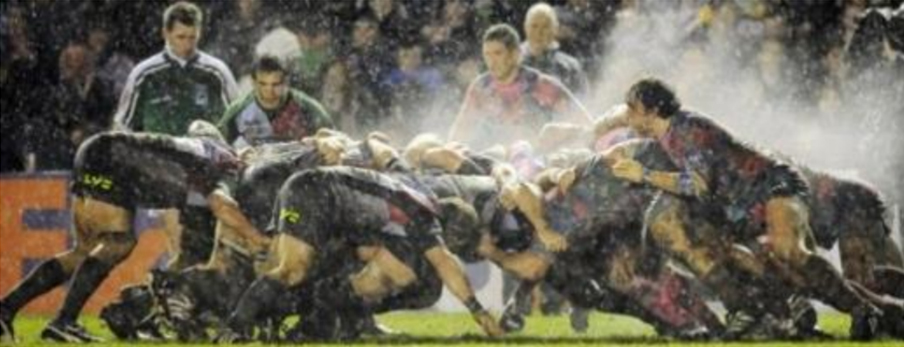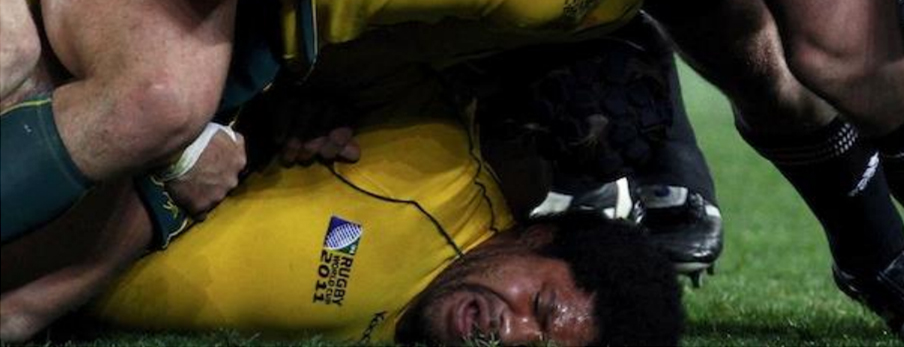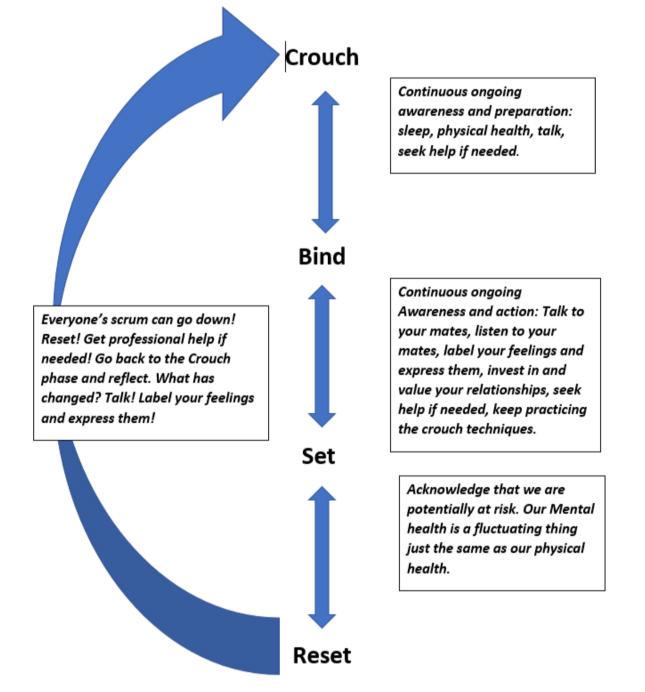This guest post comes from Andy Martin [MEd (spec & Incl) BA Ed, PGCE, PGCSEN EY, Dip Yth Couns.], who recently used rugby as a really good analogy for men’s mental health when he was doing a workshop for Dads.
The statistics around men’s mental health do not make for good reading! It is imperative that we do more to understand why this is the case and get good messages out. It may literally be lifesaving! Today on international men’s day I was honoured to deliver a talk to some of the men of our community on good practices for male mental health. Let me add now that these practices are not specific to men, but as its International Men’s Day the opportunity to focus the delivery was taken!
So… how best to deliver the messages? Well, when planning the presentation, the phrase “stay in the game” which is a phrase that has been used by sports governing bodies the world over seemed
particularly relevant, especially as the men’s Rugby World Cup had just ended. It’s also a phrase that my mother (who was a top tennis player in her time) used to say to me when she would watch me play rugby or indeed tennis or football. “Stay in the game” is a great analogy for life.
During any match or game there are periods of heightened or reduced focus. Periods of heightened or reduced performance. Periods of heightened and reduced energy. Periods of heightened or reduced stress! Managing yourself through these periods is the key to staying in the game and being ready to strike when the time is right. As it is with life. My mother, who has battled cancer for large periods of her life and from a relatively young age, is a living embodiment of “staying in the game”!
I should say now that I believe it is nonsensical to view an individual’s mental health as separate from one’s physical health! They are inextricably linked and should be viewed as such! This is the first battle we must win! Health is health!
The statistics for men do not make good reading.
- Just over three out of four suicides (76%) are by men and suicide is the biggest cause of
death for men under 35 (ONS) - 12.5% of men in the UK are suffering from one of the common mental health disorders
- Men are nearly three times more likely than women to become alcohol dependent (8.7%
of men are alcohol dependent compared to 3.3% of women – Health and Social Care
Information Centre) - Men are more likely to use (and die from) illegal drugs
- Men are less likely to access psychological therapies than women. Only 36% of referrals to
IAPT (Increasing Access to Psychological Therapies) are men. - Although suicide is not one of the main causes of death in men overall, it is the single most
common cause of death in men under 45 (References: Department of Health). - In 2016 there were 5,668 suicides in Great Britain. Of the total number of suicides, 76%
were males and 24% were females. (Reference: ONS)
The Men’s Health Forum suggests that these statistics indicate that male emotional and psychological distress may sometimes emerge in ways that do not fit comfortably within conventional approaches to diagnosis. They also show that men may be more likely to lack some of the known precursors of good mental health, such as a positive engagement with education or the emotional support of friends and family (https://www.menshealthforum.org.uk/key-data-mental-health). Another major challenge is that men’s mental health is often not dealt with, but rather, it is criminalised. Among men, poor mental health is often more likely to present as alcohol and drug abuse, or as violence. These tendencies are linked with men’s higher suicide rates. So how do we “stay in the game”. Well as its International Men’s Day and the Men’s Rugby World Cup has just ended let’s use the analogy of the scrum. The scrum has three key phases, and all must be carried
out effectively or…. the scrum goes down! CROUCH, BIND, SET!
Crouch… so what can we do prepare ourselves?

This is the stage where we Prepare for what lies ahead. The work we do in this stage is what guards us when things get tough! When we coach this stage in the scrum, we coach correct technique, body position and ensure that the players are in the physical condition to follow through with the technique. Why? Well if we don’t get the initial technique right then we increase the risk of injury!!
Players learn the correct technique to scrummage and so it is with mental health or so it should be… Except that we don’t generally coach good mental health strategies in any aspect of life and despite loads of good work in awareness evidence would suggest that we need to do more! The top players in the world can do scrum technique in their sleep, they are so practiced. Yet they
still practice day in and day out to ensure they continue to improve and build stronger techniques. This is the approach to men’s mental health we need to be taking!
Sleep…it is often the first thing that’s affected and the one healing process that is essential to
recovery.
Physical health… It makes no sense at all to view an individual’s mental health as a separate entity to
physical health. They are completely interactive. So, take care of your physical health and it will
impact positively on your mental and vice versa. Oh…and my favourite…eat well and watch what you
drink!
Talk…we must get better at it. Emotional literacy is a huge component of embedding good mental
health techniques.
Seek…professional help if needed! I cannot understate how impactful this can be.
Bind… The relationships and behaviours that hold us together!

The scrum, like life is a dynamic and changing environment. No one scrum is ever the same as one that has gone before! We must be able to react!
The key to a good scrum is how we interact and make solid connections to the people around us!!
Connections that are flexible but don’t break when under pressure or strain! Communication and emotional literacy are key to this!! And we’ve just ascertained that we are not good it. So, what can we do?
In all my presentations on emotional literacy, I always open by doing a little experiment. As the guests arrive, I ask them how they feel and then record their answers briefly. The vast majority (over
90%) always answer with one word – “Good”. Now whilst this is potentially a positive response it is not really an emotional one. There are hundreds of emotional words to choose from, yet we are
programmed from a young age (particularly in Britain) to not use them. I’m not advocating for you to spill your life story every time someone asks you how you’re feeling. I’m saying let’s break the habit of never doing it and be aware of our habitual responses to the question. If we are to build our armour, we must get better at describing our feelings and more comfortable with describing them to chosen others. We must become more emotionally literate.
From a parenting perspective the importance of quality father – child communication should never be underestimated. It is as much our job to emotionally prepare and equip our children for life as it is their mothers or indeed anybody else’s. Being adept at communicating and verbalizing our own feelings is an important part of this and being an emotional talk model for our children is powerful and we as fathers need to embrace it. In a time of growing childhood anxiety and increased awareness into the importance of the promotion of wellbeing, emotional literacy development can play a huge role in beginning to tackle potential issues from a young age! We need to get into the habit of using a range of emotional language as parents as well as considering the specific language we choose to use. We must be the emotional talk model.
Research conducted by UCLA through brain imaging in 2007, and published in the journal for Psychological Science, concluded that when people see a photograph of an angry or fearful face,
they have increased activity in a region of the brain called the amygdala, which serves as an alarm to activate a cascade of biological systems to protect the body in times of danger. The study showed that the amygdala was less active when an individual labelled the feeling and another region of the brain became more active: the right Ventrolateral prefrontal cortex.
This region is associated with thinking in words about emotional experiences. It has also been implicated in inhibiting behaviour and processing emotions. So in short, a good area of the brain to have activity in. This response was evident even when such emotional photographs were shown subliminally, so fast a person can’t even see them. Having the ability to say accurately how we are feeling not only allows us to communicate more effectively with each other but also develops our ability to consider and recognize feelings being expressed by others. A vital skill for all of us, but an especially important one for young children to develop! Developing these skills early builds good habits for life.
Talk to your mates… use emotional language! Tell them how you are actually feeling.
Listen to your mates… Active listening and responding. For me one of the most powerful and simple
language choice change’s that adults can make, comes when listening. People… and I mean ALL
people like to be heard!
Invest in and value your relationships… take the time to talk and spend time with the people you
love and like!
Seek… professional help if needed! I cannot understate how impactful this can be.
Keep Practicing the Crouch techniques
Set…into action with as much emotional armour as possible!

Set…. Into the challenges of life with as much emotional armour as possible! Why? Because we have done the preparation! This scrum phase used to be called “engage” and this is the engagement
phase! We must engage and use the strategies for good mental health that we have identified for ourselves. Maintaining the attachments we have made in the bind phase is essential as is continuing to practice our crouch phase techniques. The biggest challenge for men (and indeed it can be for women and children) is often recognition that all is not well. Denial is common! I know because I’ve experienced it. We must try to be self-aware, honest with ourselves and brave enough to ask for help or as is often the case, listen to others when they say, “you don’t seem quite yourself, everything ok”? Answer this question honestly and it’s a good first step.
It is also however the phase that carries the most risk. It’s the phase that tests all our preparation and it’s the phase that can go wrong!!
Everybody’s scrum can go down!

An acknowledgement that we are all at risk, and an acceptance that our mental health is a fluctuating state and can need attention just as much as any other part of our body is a key understanding.
So, what do we do when the scrum goes down? Well, the referee would call “reset” and that is exactly what we are going to do! We go back to our prep (crouch) and make sure we are doing
everything we should be. Ask ourselves “do we need support to get back up.
When a scrum goes down you will see all eight players hauling each other back to their feet. Their binds may have
broken temporarily, but their bonds have not! Use the people around you for help and be each other’s help! Then we bind again! Ask, talk and listen!
When we are ready and binds are solid, the referee will call set and we engage again! It is not uncommon for a scrum to go down several times before a stable engagement and this shows the ability of us men to adapt, learn and be flexible in trying situations.
And let’s not forget that even the best scrums from the best teams in the world can go down no matter how much knowledge, experience and training they have done! We cannot
control every variable all the time!
But… if we know how to crouch, bind and set we can do more than just “stay in the game” we can thrive in it!

Sign In